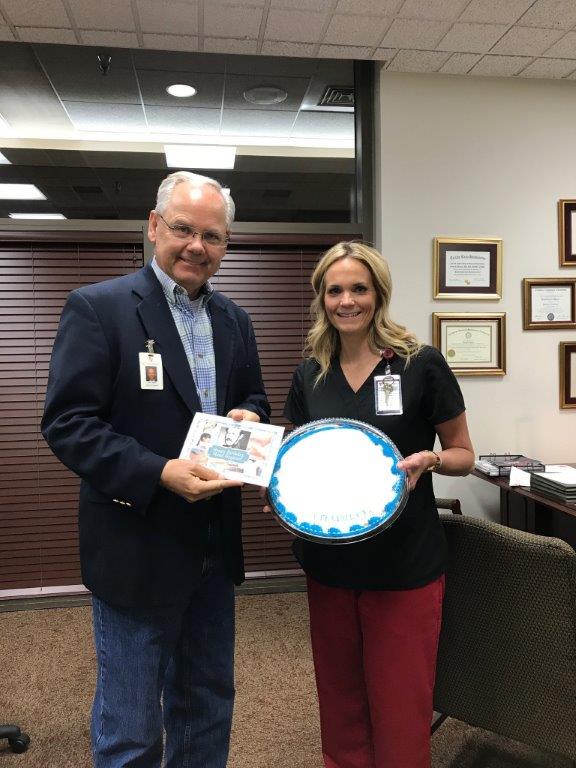Ignaz Semmelweis saved lives with three words — wash your hands.
Semmelweis, a Hungarian physician and director at a maternity clinic at the Vienna General Hospital in Austria, demonstrated in the 1840s that hand washing could drastically reduce the number of women dying after childbirth.
Recently on July 1, to remind and encourage everyone to have good hand hygiene, members of the Nursing Services team, Jeannie Bennett and Alex Scoggin, hosted a birthday party for Semmelweis (“The Father of Handwashing”).
“Good hand washing is still one of the most effective ways to prevent infection and the spreading of disease,” said Brent Magers, CEO of Texas Tech Physicians. “This was a fun activity with a purpose — to remind us all of that important principle.”
Hand washing was not readily accepted in Semmelweis’s era. According to the Centers for Disease Control and Prevention (CDC), pleas to make hand washing a routine practice throughout the hospital were largely met with derision. Another 50 years would pass before the importance of hand washing as a preventive measure would be widely accepted by the medical profession. The CDC states that in the health care setting, hand washing can prevent potentially fatal infections from spreading from patient to patient, and from patient to health care worker and vice-versa. In the home, it can prevent infectious diseases such as diarrhea and hepatitis A from spreading from family member to family member and, sometimes, throughout a community.


